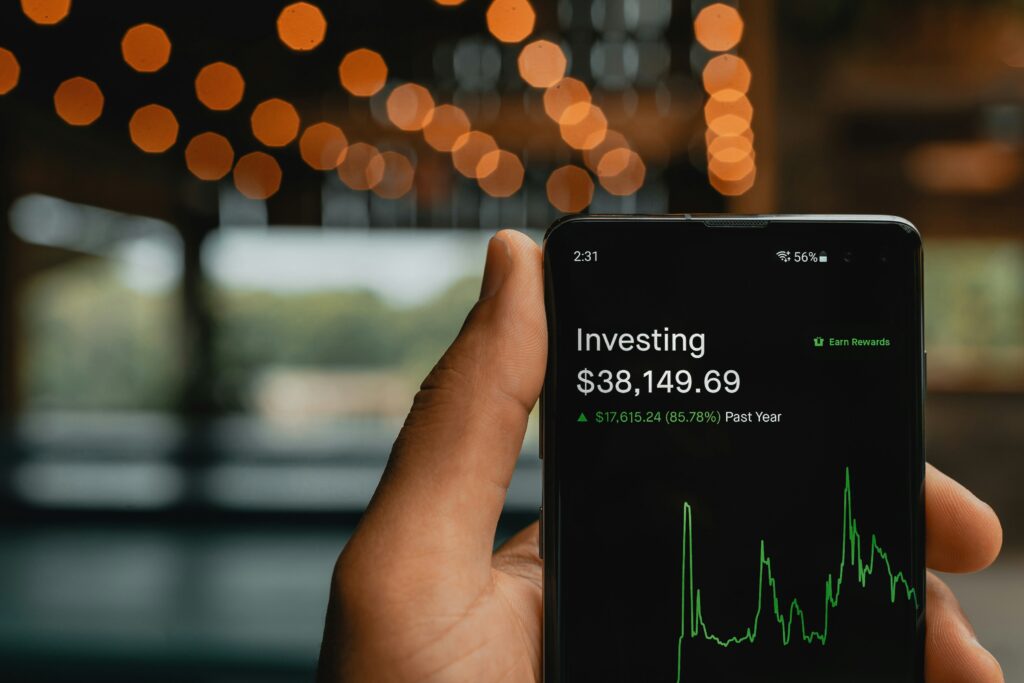Investing can feel scary when you’re new… full of strange terms, confusing headlines, and “experts” telling you what to do with your money.
And if you’ve ever thought that you need to be already rich or be a financial genius to start investing, you couldn’t be more wrong.
The truth is that you just need a simple plan, a right mindset, and the patience to let your money grow over time.
In this blog, you’ll learn how to start investing step-by-step, even if you’ve never invested a dime in your life.
What Is Investing, Really?

Photo by PiggyBank on Unsplash
Investing is using your money to buy something that grows in value or gives you income, like stocks, real estate, or even a business.
Unlike saving (which keeps your money safe but doesn’t grow much), investing helps your money work for you.
Know Why You’re Investing
Before you invest a single dollar, you must be clear on your goal.
Ask yourself:
- Do I want to grow wealth over time?
- Do I want to retire early?
- Do I want to beat inflation?
- Do I want passive income?
Example:
Sarah, 28, works full-time and wants to grow a retirement fund over 25 years. That’s a long-term goal, and a perfect reason for her to start investing now.
Setting a clear goal helps you stay on track and be consistent in your journey to financial freedom.
Get Your Financial House in Order
Don’t rush into investing if:
- You have high-interest debt (like credit cards)
- You don’t have an emergency fund (at least, 3–6 months of expenses)
Fix first, then invest.
You can start investing small amounts even as you pay off debt, but make sure your basics are covered first.
Learn the Basic Types of Investments

In the game of investing, understanding is key. I’m not saying you need to become a financial expert, I’m simply saying that what you’re investing in has to be verified and make sense to you.
As a rule of thumb, you should never invest in what you don’t understand.
That said, here are the most common and beginner-friendly assets to know:
Stocks
Shares of a company. When the company grows, so does your investment.
Bonds
Loans you give to a company or government. They pay you interest in return.
Index Funds
A group of stocks or bonds bundled together. Safer and more balanced.
ETFs (Exchange-Traded Funds)
Like index funds, but they trade like stocks. Low fees and easy for beginners.
Choose Where to Invest (The Right Platform)
You need a brokerage account… think of it as your online shop for investments.
Popular beginner platforms include:
- Fidelity – Beginner-friendly and long-term focused
- Charles Schwab – Low fees, great tools
- Vanguard – Best for long-term index investing
- Robinhood / eToro – Easy to use, but not ideal for deep education
Tip: Choose one with no or low fees, educational tools, and a good reputation.
Start Small and Stay Consistent
You don’t need $5,000 to start investing. Many platforms allow you to invest as little as $10–$100.
Example:
You decide to invest $50/month into an S&P 500 index fund. That fund includes top U.S. companies and grows with the economy over time. Even if markets dip, long-term growth usually follows.
If you invest $50/month for 20 years at a 7% return, that’s over $25,000 from just a small monthly habit.
Focus on Long-Term, Not Fast Money
Investing is not a get-rich-quick strategy. Real investing takes time, patience, and consistency.
You don’t need to:
- Time the market.
- Chase the hottest stock.
- Worry about daily news.
Instead:
- Invest regularly.
- Avoid panic decisions.
- Reinvest your earnings (called “compounding”).
Keep Learning, But Don’t Wait Forever

Photo by Veri Ivanova on Unsplash
It’s okay to feel unsure. But don’t let fear keep you stuck.
Read simple books like:
- The Simple Path to Wealth by JL Collins
- I Will Teach You to Be Rich by Ramit Sethi
- The Psychology of Money by Morgan Housel
And remember: You’ll learn best by actually starting.
Final Thoughts
Starting as an investor doesn’t require big money… it requires a clear goal, a consistent plan, and a little patience.
Here’s your simplified roadmap:
- Know why you’re investing
- Clear debt and build an emergency fund
- Learn basic investments
- Open a beginner-friendly platform
- Start small
- Think long-term
- Keep learning as you go
Ready to Start Investing, but Need Expert Help?
You don’t have to do it alone. Trial and error take time and can cost you money, but with the right guidance, you’ll make better decisions and grow faster. If you’re ready to start building wealth with smart investments, book a consultation call with me today.